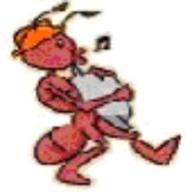A random-number table consists of a succession of digits each chosen at random and independently from the set {0,1,...,9}
(a)Two successive digits are taken from such a table, find the
probability that their sum is 9.
(b)Four successive digits are taken from the table. Find the probability that the sum of the first two equals the sum of the third and fourth.
Probability 1
2009-07-05 9:13 pm
回答 (2)
2009-07-06 12:17 am
✔ 最佳答案
A random-number table consists of a succession of digits each chosen at randomand .independently from the set {0,1,...,9}
(a)Two successive digits are taken from such a table, find the probability that their .
sum is 9.
Sol.
9=0+9=1+8=…=9+0.
p=10/100=1/10.
(b)Four successive digits are taken from the table. Find the probability thatthe sum of
the first two equals the sum of the third and fourth.
Sol
sum of the first two =0 =>N0=1*1=1
sum of the first two =1 =>N1=2*2=4
…….
sum of the first two =8 =>N8=9*9=81
sum of the first two =9 =>N9=10*10=100
sum of the first two =10 =>N10=9*9=81
........
sum of the first two =19 =>N19=1*1=1
N=1^2+2^2+3^2+…+10^2+9^2+…+1^2
=2*(1^2+2^2+3^2+…+10^2)-10^2
=2*10*(10+1)*(2*10+1)/6-100
=670
p=670/10^4=67/1000
2009-07-06 7:04 pm
Is repitition allowed?
收錄日期: 2021-04-23 23:20:31
原文連結 [永久失效]:
https://hk.answers.yahoo.com/question/index?qid=20090705000051KK00625


